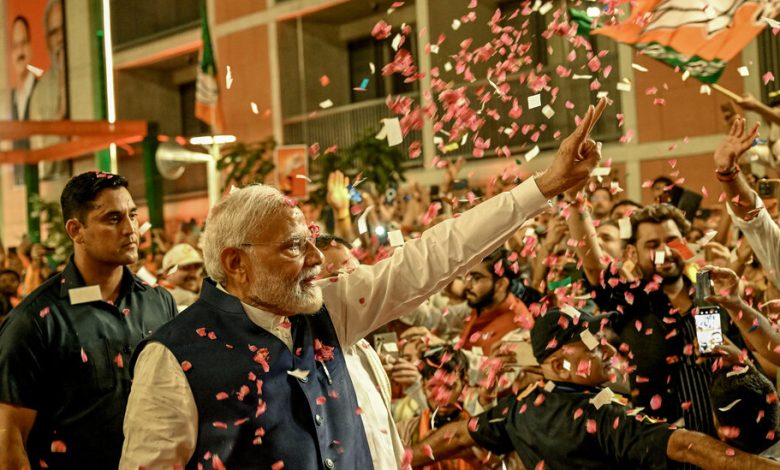India’s Modi, Humbled by Voters, Faces Potent Economic Struggles

Before the Indian election results emerged this week, Prime Minister Narendra Modi was widely viewed as a charismatic and popular strongman celebrated by the business world for elevating its importance, even as he failed to solve a vexing problem: how to turn swift economic growth into critically needed jobs.
After the election, Mr. Modi finds himself staring at that same monumental puzzle, yet relegated to an uncomfortable new status. He is the head of a party that has been chastened at the polls, forcing him to forge a coalition to maintain power.
Mr. Modi’s governing authority is likely to be constrained by the complexities of keeping his coalition partners on his side. He could not solve India’s most deep-seated economic challenge when he wielded a monopolistic hold on power. Now, he is a weakened leader who must balance additional interests, while still lacking an obvious way to improve living standards.
“There has been a sense that employment growth has been weak in the last four, five years,” said Arvind Subramanian, a former chief economic adviser to the Modi administration, who is now a senior fellow at the Peterson Institute for International Economics in Washington. “How do you create more jobs? This is really India’s central economic challenge, but I think the government will find itself with relatively limited tools.”
The humbling of Mr. Modi’s party resonates in part as an expression of popular frustration that India remains a land of economic peril for hundreds of millions of people, as well as a country defined by astonishing contrasts in wealth. In major cities, five-star hotels boasting sumptuous spas look down on teeming slums that lack plumbing. In rural areas, malnutrition prevails under many roofs, and families struggle to find the money to keep children in school.
